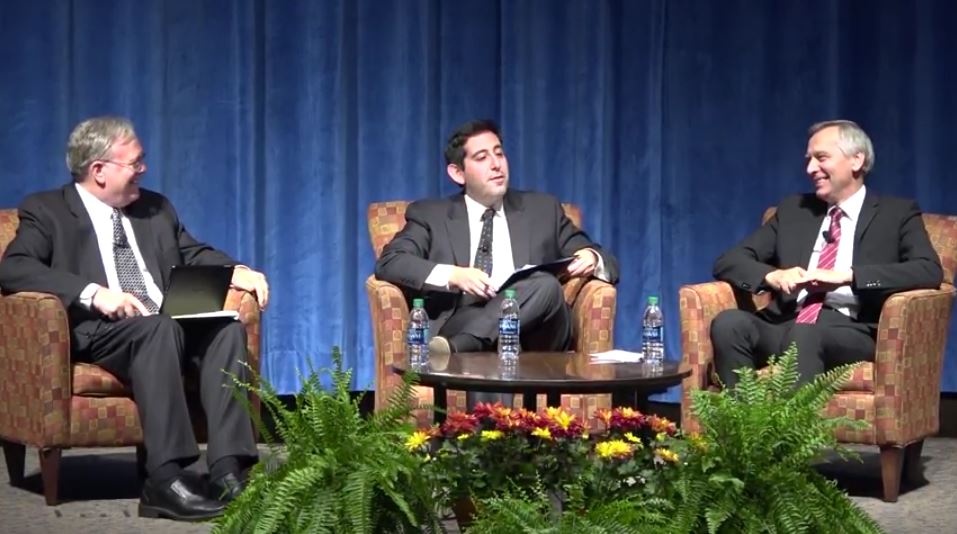Cole Durham and Ján Figel’ at Emory Law School: “Restoring Religious Freedom”

“Law, Religion, Equality, and Dignity” was the theme of the Restoring Religious Freedom Conference held at the Emory University School of Law on 6-7 of November 2016. Professor Cole Durham joined Ján Figel’, EU Special Envoy on Freedom of Religion or Belief, in a conversation titled “A Century of Genocides: Is Better Accommodation of Conscience an Answer?” in a Sunday evening session co-sponsored by the J. Reuben Clark Law Society Freedom of Religion Project. This event, which also commemorated the 100-year anniversary of the Emory University School of Law, was moderated by Mark Goldfeder, Senior Lecturer and the Spruill Family Senior Fellow, or Emory Law’s Center for the Study of Law and Religion.
The conversation between Professor Durham and Special Envoy Figel’ began with opening statements by both and was then followed with questions posed by Professor Goldfeder and addressed by both speakers.
Special Envoy Figel’ opened by saying that our commitment is not just to punish genocide but to prevent it. We must do more in order to turn the page for a more human century. In order to turn that page, we need a culture of human dignity to prevail. Freedom of religion or belief (FoRB) is a litmus test of human rights. Without it, civil and political rights are missing as well. We must allow humanity and solidarity to prevail and fight against indifference, intolerance, and fear to make a better century a reality.
In Professor Durham’s opening statement he asked what genocide has to do with the United States today. We have a robust tradition of liberty. However, there is relevance. Respect for and accommodation of conscience holds the key for people to live together in spite of deep differences. Genocide is a process with history and precursors and triggering factors. The path to genocide starts with mundane patterns of disrespect and discrimination. “What is required for peace is not homogeneity but that different groups internalize notions of freedom of religion or belief and recognize and are willing to stand up for other people.” It is critical to find ways to live together, even if it may not come with agreement or consensus.
The conversation between Professor Durham and Special Envoy Figel’ was recorded and can be watched on YouTube at this link.
Other session topics were International Perspectives on Equality and Dignity, Accommodating Fundamental Rights and Religious Freedoms, Religious Perspectives on Equality and Dignity, and Alternative Approaches to Accommodation. Douglas Laycock, Robert E. Scott Distinguished Professor of Law, University of Virginia, delivered the keynote address. The program and full list of speakers can be found here.